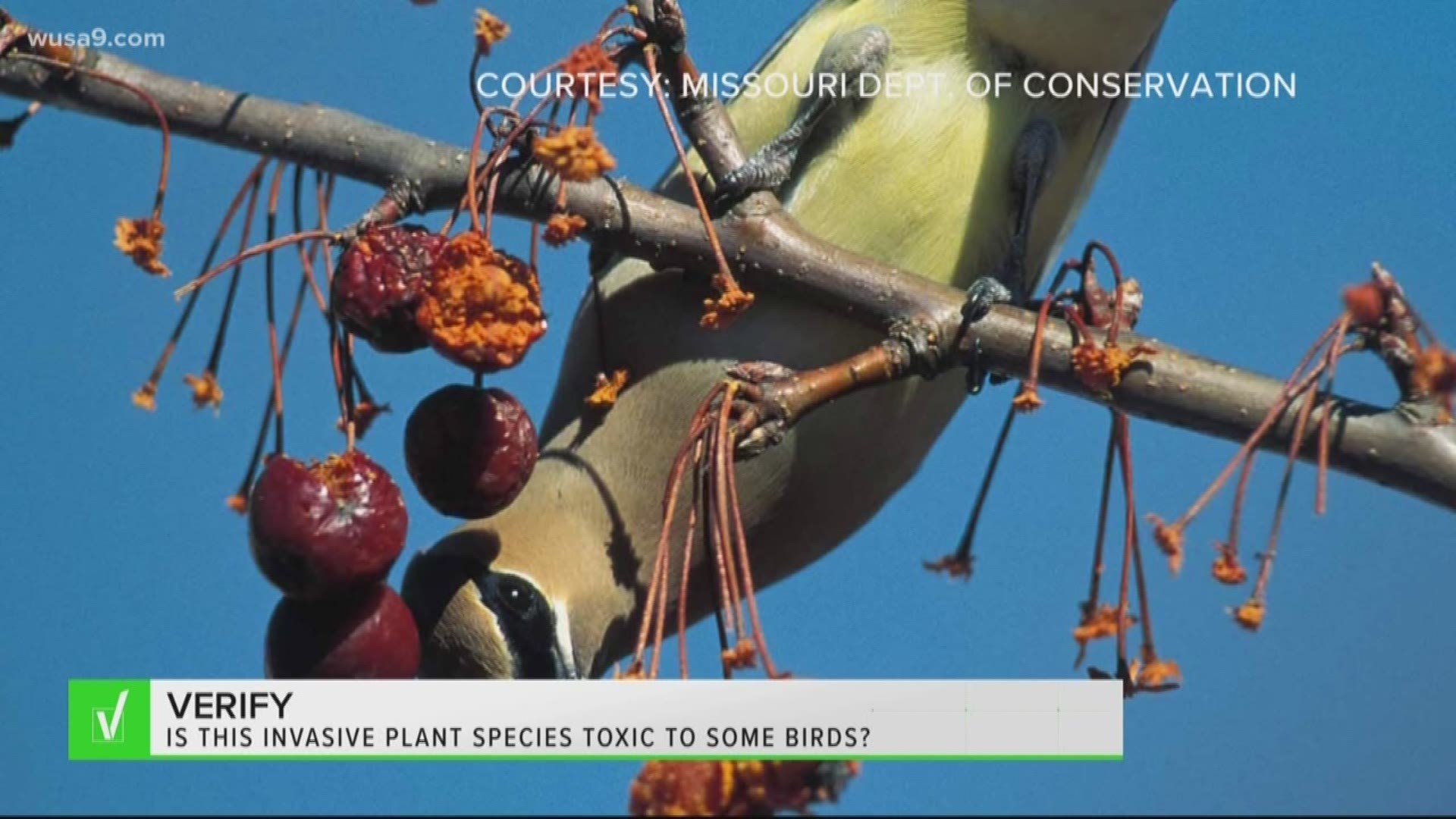WASHINGTON, Pa. — QUESTION:
Is an invasive plant species called Nandina Domestica blooming berries that are toxic to songbirds?
ANSWER:
Yes, if the songbirds eat enough. The berries contain small amounts of cyanide. In one well-documented case, a flock of song birds died, after ingesting Nandina berries.
SOURCES:
Robert Mulvihill - National Aviary Ornithologist
Bill McLaughlin - United States Botanic Garden Plant Curator
Maryland Department of Agriculture- Weed Risk Assessment for Nandina domestica
University of Georgia College of Veterinary Medicine, "Toxicity Due to Nandina domestica in Cedar Waxwings"
PROCESS:
Viewer Nicky Nickerson asked the Verify team to fact-check a Facebook post she saw with over 16,000 shares.
To get our answers we contacted the United States Botanic Garden's plant curator and an ornithologist at the National Aviary.
They confirmed yes, this plant called the Nandina Domestica, or Heavenly Bamboo, has berries with small amounts of cyanide.
If songbirds or any birds, cats or dogs for that matter eat enough of them, they could get really sick.
"Enough," in this case, means in mass, just like how if you eat several apple seeds it won't kill you, but ingesting them in mass might give you cyanide poisoning.
It comes down to how many berries vs how big the bird is.
"It's reasonable to be cautious about planting this if you already know you attract a lot of birds in your yard," Robert Mulvihill, an ornithologist at the National Aviary in Pittsburgh said.
While Mulvihill said that no one species of bird is more susceptible to overeating these red berries, there is one well-published account in 2009 of Cedar Waxwings dying after gobbling down on them in Georgia.
"Their style of eating is to gorge on fruits when they find them available, that's their foraging ecology," Mulvihill said. "That may be one of the things that has made them susceptible to the cyanide, they will sit and eat a great many berries in one sitting and then go somewhere to let that process through the digestive track."
The birds are exclusively "frugivorous," or fruit-eaters, in the winter.
The Georgia case is the only published account of several birds dying from eating too many Nandina Domestica berries.
So yes, we can verify that this plant CAN be toxic to songbirds IF they eat enough of it.
Bill McLaughlin at the U.S. Botanic Garden suggests opting for the Winterberry Holly which looks similar, but is safer for birds and mammals.



